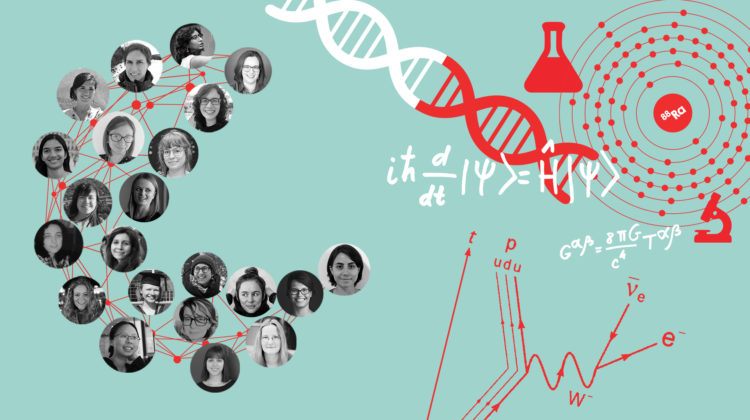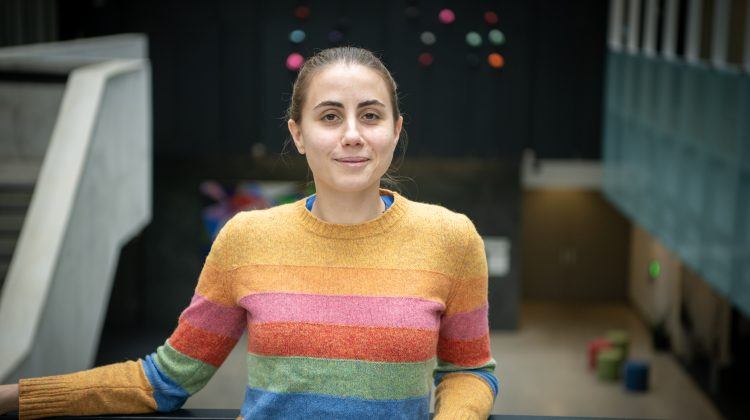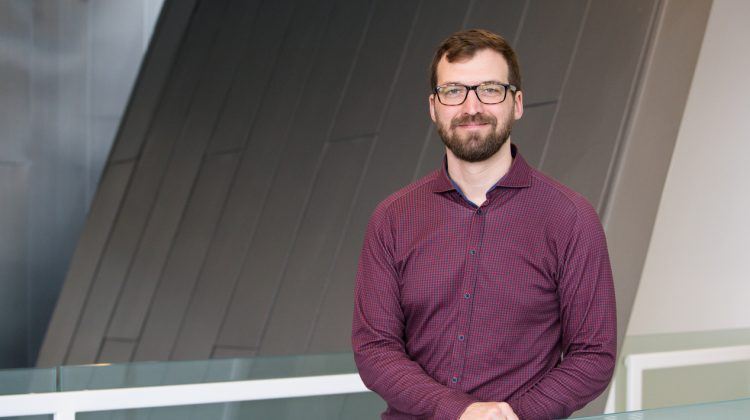The Perimeter opportunity
Great moments in science require great work – and great support.
On February 11, 2016, the Perimeter community gathered in our Black Hole Bistro to witness one of the most dramatic and moving moments ever in science.
The LIGO collaboration announced that they had detected, for the first time, gravitational waves, faint ripples in spacetime, which originated at the merger of two black holes over a billion light years away. It was a scientific and technological feat of almost unimaginable precision, and a wonderful example of humankind’s ability to understand the universe on scales far beyond our everyday experience.
A new window on the cosmos has opened, allowing us to see phenomena of the deepest significance, which were previously hidden from view. As you’ll read in this issue of Inside the Perimeter, the impact of this discovery will be enormous. We shall learn spectacular things about black holes, the structure of the universe, and even the big bang itself. Nobel Prizes are on the way for sure, but that is the least of it!
LIGO was a moonshot – difficult, risky, and hugely ambitious. And ultimately, a huge success for science, for spinoff technologies, and for raising humankind’s sights. Their wonderful discovery shows us all what is possible with vision, sustained effort, and committed government support.
Here at Perimeter, we are attempting something different, but equally ambitious. And here too, we are fortunate to have visionary government support. The confidence the governments of Canada and Ontario have expressed in Perimeter, by renewing our funding for a further five years, is a huge endorsement of our belief that basic physics advances will be crucial to our collective future.
The people of Ontario and Canada, and their governments, share our conviction that major progress is possible when we reach for the stars.
The opportunity Perimeter represents is appreciated globally. Last fall, our external Scientific Advisory Committee, comprising nine eminent scientists from around the world, undertook an extensive review of the Institute. In a glowing report, they stated: “It is difficult to conceive of a research institute of similar scope and size that would generate as much visibility and impact for every dollar invested in it as does Perimeter Institute.… By lending its support to the Perimeter Institute, the Canadian government takes a lead role in promoting fundamental science as enabling future innovation.”
Physics discoveries drive progress. There are as many opportunities for discovery today as there have ever been. Quantum science is advancing rapidly, with the prospect of incredible new technologies for computing, sensing, measurement, and communication, which are likely to drive innovation and economic prosperity in the coming decades. Theoretical insights have driven these advances and they will continue to be vital to harnessing the quantum world.
For young people, basic physics presents an opportunity to acquire skills that can be wielded in innumerable ways. As you’ll see in a special section, the curiosity, insight, and spirit of exploration that drive physicists can also help humanity fight illness, create art, understand ecology, and perhaps unlock mysteries of the brain.
Great discoveries – like the Higgs boson, or gravitational waves – open new windows on nature and new possibilities for the future. They inspire everyone to look beyond our immediate concerns and to think big.
Thinking big is the raison d’etre of Perimeter. We nurture new ideas by opening our doors to the world’s brightest talents, by giving them the maximum research freedom and opportunity, and by sharing our science with the world.
We have been given an incredible opportunity, by our supporters and by the universe. Let’s make the most of it.
– Neil Turok, Director, Perimeter Institute
























































































